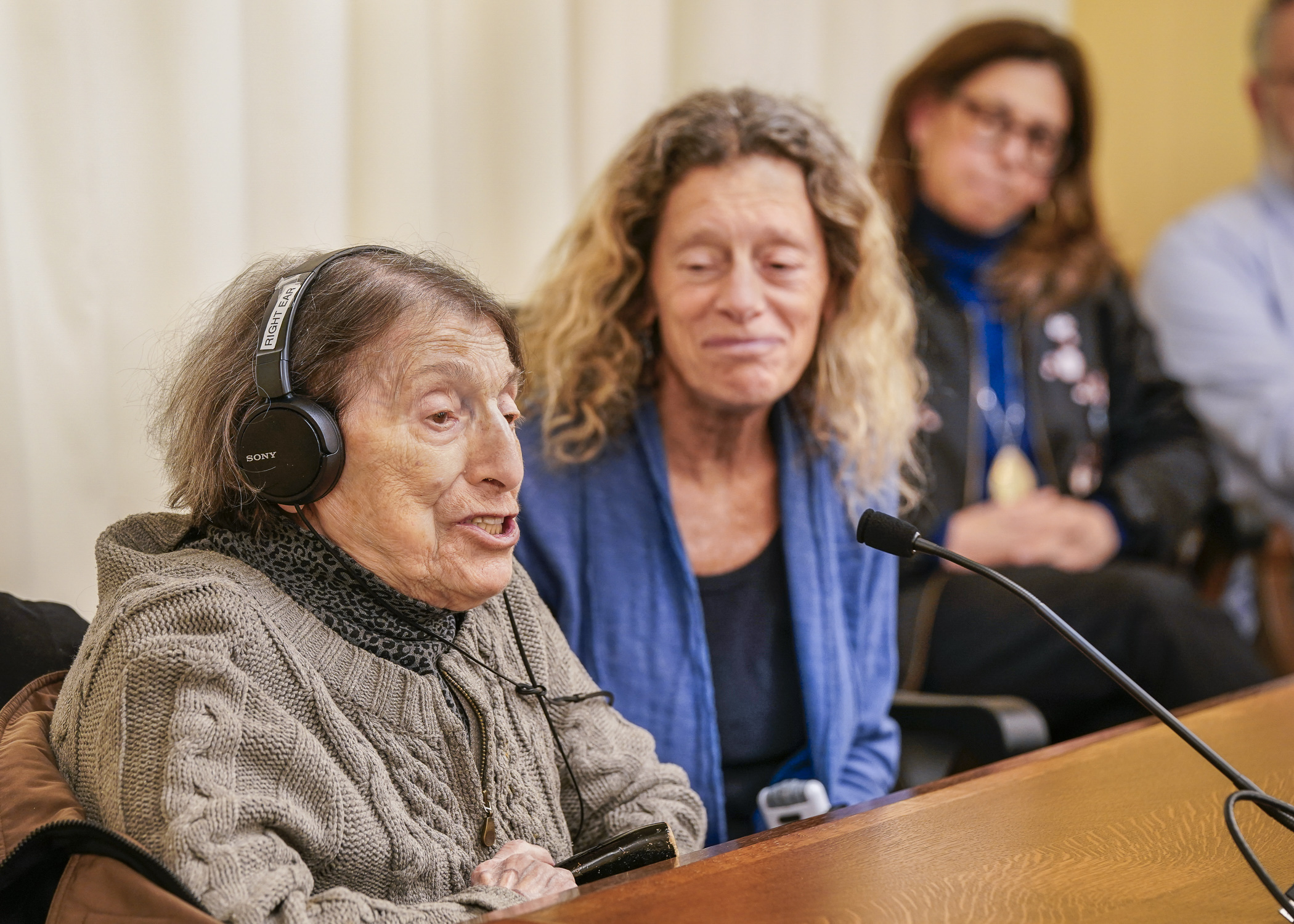Holocaust survivor urges lawmakers to mandate genocide studies in Minnesota classrooms

Dora Zaidenweber is 99 years old and a survivor of the Holocaust.
Born in Poland, most of her family was wiped out by the Nazis. When she first arrived in the United States in 1950, many people couldn’t comprehend what she had been through or outright doubted her stories. She wants to ensure all Minnesota students learn about this terrible past, equipping them to create a more tolerant future.
“We need a requirement that not only all students but everybody, everybody in Minnesota educated should have a knowledge of the dangers of what mass murder can happen and that people have to understand to learn to live with each other,” she said. “And that is only through understanding and through education, so they know their neighbor’s son, who the people are they are living with, and have to learn to live with them.”
Rep. Frank Hornstein (DFL-Mpls), the son of Holocaust survivors himself, has taken up this cause to counter hate and prejudice by sponsoring HF2685.
With his mother lying on her deathbed in hospice, Hornstein asked what charitable acts he could do in her memory. Her response? Give money to elderly Holocaust survivors and educate the broader community about what happened.
“Carrying this bill, I’m carrying on my mother’s wish to all of you,” he said.
Hornstein’s bill would mandate the teaching of the darkest chapters of human history in middle and high school classrooms. The Holocaust, the genocide of Indigenous Peoples, and other genocides of modern times would need to be included in the social studies curriculum by the 2025-26 school year.
On Wednesday, the House Education Policy Committee approved the bill, as amended, sending it to the House Education Finance Committee.
The bill would also establish a working group of between 11 and 21 members to advise the Department of Education on the implementation of this new curriculum. Duties of the working group would include developing model lesson plans and identifying professional learning opportunities for educators.
The bill also emphasizes that the teaching of genocide studies would not be limited only to the Holocaust. The “genocide, dispossession, and forced removal of the Dakota, Ojibwe, and Ho-Chunk” in Minnesota is named, as well as many other murderous campaigns carried out in the 20th and 21st centuries.
The committee was united in its support for the proposal. Several members told moving stories of visiting Holocaust sites in Europe, while Rep. Dean Urdahl (R-Grove City) captured the mood in the room by simply saying, “It’s important to shine the light of history on this very tragic event.”
Related Articles
Search Session Daily
Advanced Search OptionsPriority Dailies
Speaker Emerita Melissa Hortman, husband killed in attack
By HPIS Staff House Speaker Emerita Melissa Hortman (DFL-Brooklyn Park) and her husband, Mark, were fatally shot in their home early Saturday morning.
Gov. Tim Walz announced the news dur...
House Speaker Emerita Melissa Hortman (DFL-Brooklyn Park) and her husband, Mark, were fatally shot in their home early Saturday morning.
Gov. Tim Walz announced the news dur...
Lawmakers deliver budget bills to governor's desk in one-day special session
By Mike Cook About that talk of needing all 21 hours left in a legislative day to complete a special session?
House members were more than up to the challenge Monday. Beginning at 10 a.m...
About that talk of needing all 21 hours left in a legislative day to complete a special session?
House members were more than up to the challenge Monday. Beginning at 10 a.m...